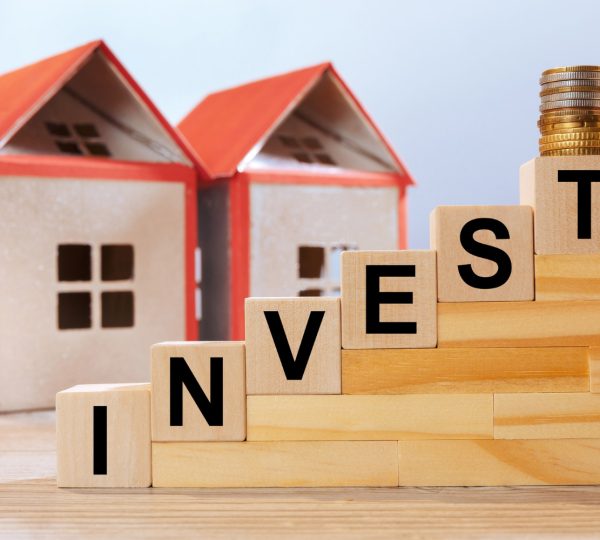The prevailing consensus for years has been that purchasing a house is a wiser financial move than renting, particularly if you intend to keep the property for longer than five years. This has always been the case since, unlike rent payments, which have no financial impact on your portfolio, mortgage, and tax expenses may be written off from your income tax return, and property prices often rise over time. It’s the same with a condominium. This assumption has been challenged by the present real estate market, as not all homebuying situations now make as much economic sense as renting.

If you’re purchasing a condo, keep the following things in mind:
Loan and tax rates might change
Currently, the most significant issue deterring buyers from buying a house is the sharp rise in mortgage rates. The typical house price, particularly condos in a large city like New York, can be much beyond that figure. It is correct that you can reduce the interest on the mortgage for loans out to $750,000 per pair ($375,000 if you’re married and filing separately). Additionally, the IRS’s modifications currently only provide a property tax deduction of up to $10,000. In areas with high property taxes, this move has significantly impacted the value of homeownership.
On the other hand, if you pay cash for your apartment, the rise in mortgage rates won’t affect you. More can be laid down at close range, which is excellent. The deduction maximum will also be less of a barrier if you buy a condo in a community or city featuring lower property taxes.
Do You Have Five Years to Turn a Profit?
The most uncomplicated strategy to recover your investment and sale for more than your purchase price was historically regarded to be to acquire a condo that you intend to live in or lease out for more than five years. This might not be the case anymore following the extraordinary inflation of the property market during the last three years. The possibility of reselling for a sizeable profit in the following 5 to 7 years has decreased as a result of recent increases in property prices, which have reached an all-time high.
This is particularly true in New York City, where some brand-new structures with state-of-the-art facilities, cutting-edge technologies, and appliances were recently sold for a premium. However, such houses will be around for five to ten years. More recent structures would have modern technology and instruments, decreasing your chances of making back your investment if you paid a premium.
There Are Still Deals Available
All evidence points to the market flattening and steadily declining to more reasonable levels. The coronavirus pandemic’s tremendous exodus from cities has subsided, and many markets have seen a steady rise in housing supply. Home values have thus started to decline, and price wars are less frequent. According to estimates made by realtor.com in 2023, mainly the U.S. changed into a buyer’s market, except for a few calls. There are discounts available. The most affordable condos are often those that require maintenance.
A Good Investment Is Fixer-Upper Real Estat
You may find Fixer-upper houses at fantastic prices. Buyers are less likely to purchase properties that require extensive renovations now because of the supply chain problems and workforce limitations that beset contractors during the epidemic. You’ll discover the best deals on the market there since fewer purchasers can afford the time, energy, and expense of a makeover. If you want to go this way, it’s crucial to choose your materials carefully. The best tile from Italy can still take several months to obtain and have high costs, whereas goods created in the United States might be less expensive and simpler to find.
A restoration or upgrading project can be a terrific investment in the present market if you are intelligent and adaptable in your decision-making. If you do choose to purchase a condo that requires extensive repair, your investment will wind up paying off because you initially obtained an excellent price. Because turnkey properties are in high demand among tenants and buyers, your home will probably fetch a higher price sooner. It will also be simpler to lease it out if you choose to do that.
Is renting in the marketplace always a better choice?
Renting is a wise financial move right now because purchasing has been more expensive recently due to rising mortgage rates, fewer property tax deductions, and lower anticipated future resale prices. Even though this is frequently the case, you should be aware that rents are rising in almost all big markets, regardless if you’re renting a condo from a private homeowner, a condominium from a giant corporation, or a single-family home. Depending on where you live, a condo may be more affordable to buy than to rent. A 2021 Lending Tree analysis was used in a Jan. 12 piece in The New York Times to compare median monthly homeownership prices to the typical rent in places throughout the U.S. The cost of owning vs. renting had the most considerable differences in New York City, San Francisco, Los Angeles, and San Jose, California, favoring renters. The cost gap between owning and renting was least in Memphis and Nashville in Tennessee, Tampa in Florida, and Las Vegas. In many of the cities with the lowest disparities, purchasing may be the best option when taking mortgage and property tax deductions into account.
Renting has the disadvantage that your landlord may arbitrarily raise the rent once your lease expires. If rents in your neighborhood continue to climb, you will have few options.
Purchasing a Condo as Investment
When buying a condo, it still makes financial sense to purchase a property investment that you intend to rent out for a long-term or short-term rental. Mortgage interest is regarded as a business cost and is not capped if your condo generates any rental revenue. Additionally, regarded as a business cost, the property taxes are exempt from the $10,000 limitation on tax deductions. The acquisition of a condo in a well-known vacation spot is a wise choice, given the growing rental costs in the most popular areas, since you may charge more for short-term rent. To be sure you can rent out your apartment on a short-term basis, examine the local laws and condo association regulations. Each city has a different definition of what constitutes a short-term rental. While some towns demand that you stay in the house while it is rented out, others are more lenient.
The Short and the Sweet of It
There are areas of the market that can be a good investment right now, including such investment or vacation rental units in popular locations or homes that need a lot of work, even though renting an apartment instead of buying a condo may be the wiser financial decision in many cases given the current market. Furthermore, being able to pay in full for a purchase—particularly one of an investment property—can be advantageous. There are possibilities to purchase a condo in which you will experience a financial gain when the market shifts into one favoring buyers.
Do not forget that not all choices are driven only by financial considerations. You are selecting where you would like to live, where you wish to raise your kids, commute to work or work from home, or where you want to get involved in the community. Financial considerations should be one of many factors taken into account when choosing a condo wherein you wish to establish roots and make memories. Before taking the plunge, you might temporarily rent a home nearby.



